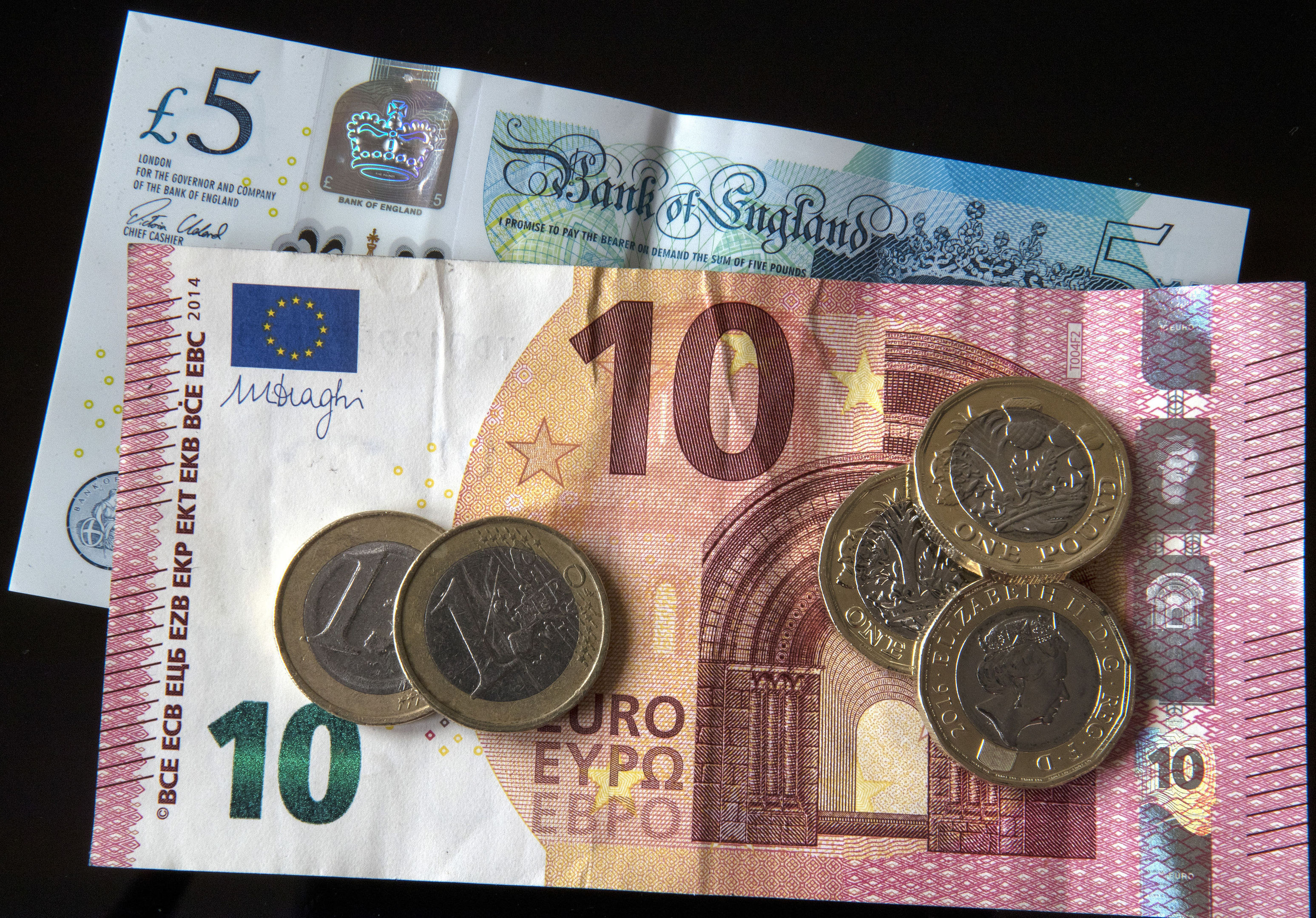
MANY travellers embarking on overseas August bank holiday trips will have less spending money if they failed to buy foreign cash in advance, a currency trader has warned.
FairFX reported that the pound has fallen 3% against the euro since the start of the summer holidays a month ago to a rate of 1.09, meaning tourists are getting 32 fewer euros for every £1,000 they exchange.
Tourists who wait until they are about to board their flight face even worse deals, with some airports offering walk-up rates of just 0.95 – less than one euro per pound.
A positive update on the eurozone economy gave the euro a boost, while sterling has suffered from the UK’s fragile financial outlook.
It is not such a grim scenario for those heading to the US, as the pound is 7% stronger against the dollar than when it reached a historic low in January.
But the exchange rate has fallen by 2% since this time last month to 1.28, meaning people buying currency for a transatlantic break are getting 21 fewer dollars per £1,000 exchanged.
FairFX chief executive Ian Strafford-Taylor told the Press Association: “Holidaymakers looking to make the most of their spending money have had a tricky summer.
“At a time when going on holiday is at its most expensive because of the school holidays, families have had the added financial squeeze of a volatile pound to contend with.
“This week, the pound reached its lowest level against the euro since 2009, which means consumers who haven’t planned ahead and bought currency in advance will have less cash to play with when they land at their destination of choice.”
But holidaymakers can reduce their losses if they are “smart and do their research”, he insisted.
“They should keep track of rates as the pound’s progress changes daily,” he said. “Locking in a deal when the pound is at its strongest, while at the same time choosing the most reasonable provider, should mitigate much of the money they would have lost.”
Travel trade organisation Abta reported that eurozone cities such as Dublin, Amsterdam and Paris are among the most popular for a short-haul getaway, with around 2.1 million Britons expected to travel abroad this weekend.
Mr Strafford-Taylor also urged holidaymakers to “consider changing their destination” if they have the budget.
He said: “The pound is much improved against the dollar since the beginning of the year, for example. Choosing alternative countries where the pound is improving means you and your money could go a lot further.”

Enjoy the convenience of having The Sunday Post delivered as a digital ePaper straight to your smartphone, tablet or computer.
Subscribe for only £5.49 a month and enjoy all the benefits of the printed paper as a digital replica.
Subscribe